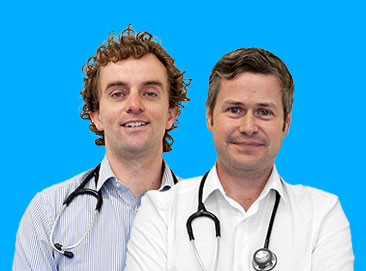Securing a mortgage as a resident doctor, dentist, or other professional can be a straightforward process with the right knowledge and planning. In this guide, we’ll cover essential aspects to consider when seeking mortgages for resident doctors. From credit scores to deposit amounts, types of mortgages, and the benefits of specialist brokers, we’ll equip you with the information you need to secure the best deal.
Improving Your Credit Score and Financial Clean-up
Your credit score plays a crucial role in mortgage approval. Taking steps to enhance your credit score, such as registering on the electoral roll, paying bills promptly, and rectifying any errors on your credit report, can significantly impact your eligibility for favorable mortgage rates. If you’re new to credit or have a limited history, these actions can help establish a positive credit record.
What medical school didn’t teach us about money
“What medical school didn’t teach us about money” will give doctors a step by step plan to transforming your financial future. Enter your details to download your copy now

Locum and Self-Employed Doctors: Years of Accounts Needed
For locum or self-employed doctors, the number of years’ accounts required to secure a mortgage varies. Generally, having at least six months of income as a locum is a common requirement. The situation becomes more straightforward with 2-3 years of self-employment experience. It’s important to recognize the distinct assessment methods for different types of locum roles, making it crucial to prepare adequate documentation to support your mortgage application.
Deposit Requirements for Resident Doctors Mortgages
Currently, it’s possible to obtain a mortgage with just a 5% deposit or a Loan to Value (LTV) ratio of 95%. The LTV reflects the loan size relative to the property’s value. Generally, higher deposits (lower LTVs) lead to better interest rates, resulting in lower borrowing costs. Aiming for an LTV of 60% instead of 61% can offer access to improved interest rates, potentially saving you money over the mortgage term.
Choosing the Right Mortgage: Repayment vs. Interest Only
Resident doctors can choose between repayment and interest-only mortgages. With a repayment mortgage, you gradually pay off both the capital and interest, ultimately owning your home at the mortgage’s end. Conversely, an interest-only mortgage entails paying only the interest, requiring a repayment plan to settle the capital. Resident doctors should carefully consider their financial situation and long-term goals when deciding on the right mortgage type.
Offset Mortgages: A Unique Solution
Offset mortgages offer a distinctive advantage for resident doctors who maintain substantial balances in their current accounts. This includes self-employed professionals who hold funds for tax payments. These mortgages allow your account balance to offset your mortgage amount, reducing the interest paid. While interest rates might not always be the most competitive, offset mortgages can be advantageous in specific scenarios, like minimizing interest costs on substantial mortgage amounts.
Specialist Mortgage Brokers for Resident Doctors
Navigating the mortgage landscape can be daunting, but specialized brokers with expertise in serving resident doctors can simplify the process. These brokers understand the unique financial circumstances of medical professionals, such as complex pay structures and locum income. Their insights can lead to better mortgage terms and increased chances of approval. At Medics’ Money, we connect you with the ideal broker for your situation.
Fixed vs. Variable Rate Mortgages: Making the Right Choice
The choice between fixed and variable rate mortgages involves considering interest rate fluctuations and your financial circumstances. Fixed rates provide stability, while variable rates can change based on market conditions. Determining the best option necessitates assessing available deals, your financial situation, and future rate predictions. Expert mortgage brokers experienced in working with resident doctors can offer valuable guidance in making this decision.
Special Considerations for First-Time Buyers
First-time buyers, including resident doctors, can explore government-backed schemes to assist with purchasing their first home. The Lifetime Individual Savings Account (LISA) allows individuals aged 18-40 to save up to £4,000 annually, receiving a 25% government contribution. This free money can accelerate your journey to homeownership. Additionally, shared ownership schemes backed by the government provide further opportunities for aspiring homeowners.
In conclusion, resident doctors seeking mortgages can take advantage of their professional status to secure favourable terms. By understanding credit scores, deposit requirements, mortgage types, and the benefits of specialist brokers, you can navigate the mortgage landscape with confidence. Choosing the right mortgage and expert guidance can lead to a successful home purchase journey.
Help for first time buyers
Join 30,000 doctors and receive free, exclusive, financial CPD for doctors in your inbox.
Medics’ Money is run by doctors and finance experts, for doctors. Our free financial CPD gives you all the knowledge you need to take control of your finances.

If you are a first-time buyer saving for a house deposit, aged between 18-40 and planning on buying a house worth less than £450,000 then a Lifetime Individual Savings Account (LISA) is worth considering. You can save up to £4,000 per year into your LISA and the government will top up this amount by 25%. Free money to help you build up a house deposit. LISA effectively replaced The Help to Buy ISA which is now closed to new applicants.
This guide does not constitute financial advice and your YOUR HOME MAY BE REPOSSESSED IF YOU DO NOT KEEP UP REPAYMENTS ON YOUR MORTGAGE.
Avoid all this drama and let us match you to an Independent Mortgage adviser handpicked by us with reviews from doctors like you.








